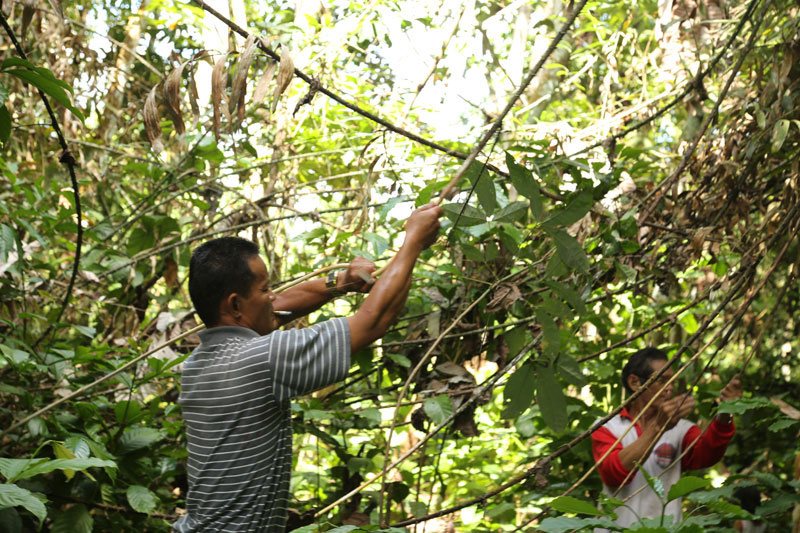
When it comes to protecting biodiversity and ensuring climate stability, this cannot be overstated: forests are vital.
They are the home to millions of indigenous peoples that rely on forests for sustenance, shelter and income. But economic activities such as large-scale plantations, extractive industries, migration and other factors have depleted our natural forests, and the damage is fast becoming irreversible.
The race is on to find solutions to keep forests intact. While economy-oriented solutions seem to be a an acceptable means of addressing this issue, such solutions need to be defined with the participation of the people and communities who most depend on forests. More importantly, there needs to be a fair and equitable distribution of benefits of such solutions.
If forest-based communities and their enterprises, governments and the private sector can collaboratively find solutions to saving forests, then perhaps the hope for a better, sustainable future is not yet lost.
For example, in Indonesia many farmers, especially indigenous peoples, harvest from the forest to earn a living. Many harvest rattan, a climbing vine utilized artisans across Southeast Asia for furniture, housewares and fashion items. Harvesting rattan used to provide an important source of livelihood for forest-based communities. Unfortunately, government policies and other economic factors have kept the price of rattan cane low and thus many are abandoning their gardens and forests for other work.
Around 10 years ago, civil society organizations including NTFP-EP Indonesia, government representatives, rattan producers and artisans in Indonesia got together to establish a mechanism to ensure that rattan is not only harvested sustainably, but that farmers are able to get a good price for their rattan as an incentive for them to keep forests intact. This system is called PGS ROTAN LESTARI or ROLES for short. Rotan lestari in Bahasa Indonesia means “sustainable rattan.”
PGS ROLES is a participatory certification mechanism which ensures legality, traceability, production and ecological sustainability, and social welfare for rattan producers.
This certification mechanism applies an appropriate, effective, cost-efficient scheme to certify rattan harvested by community-based farmer producers based on sustainable standards and criteria that have been developed collectively. Over time, this scheme was further developed and have been piloted with the view to help companies and farmers to be audited against the standards and criteria. In turn, they will increase their credibility and marketing values, thus resulting in the conservation of forest and increased benefits for rattan producers.
PGS Rotan Lestari or ROLES is one of the alternative and innovative solutions towards the sustainable management and equitable use of forests and the consumption of forest resources such as non-timber forest products. Most importantly, it highlights that any solution for environmental issues should include the voices from the ground, from those who know the situation first hand and whose lives and futures are intrinsically linked to their livelihood.
Nothing will come if we continue to act alone and on our own interests. Healthy forests and sustainable lifestyles ultimately benefit everyone, and as such we all need to pitch in together as one for a just future.
Stay tuned for further updates on the official launch of PGS ROLES next week



